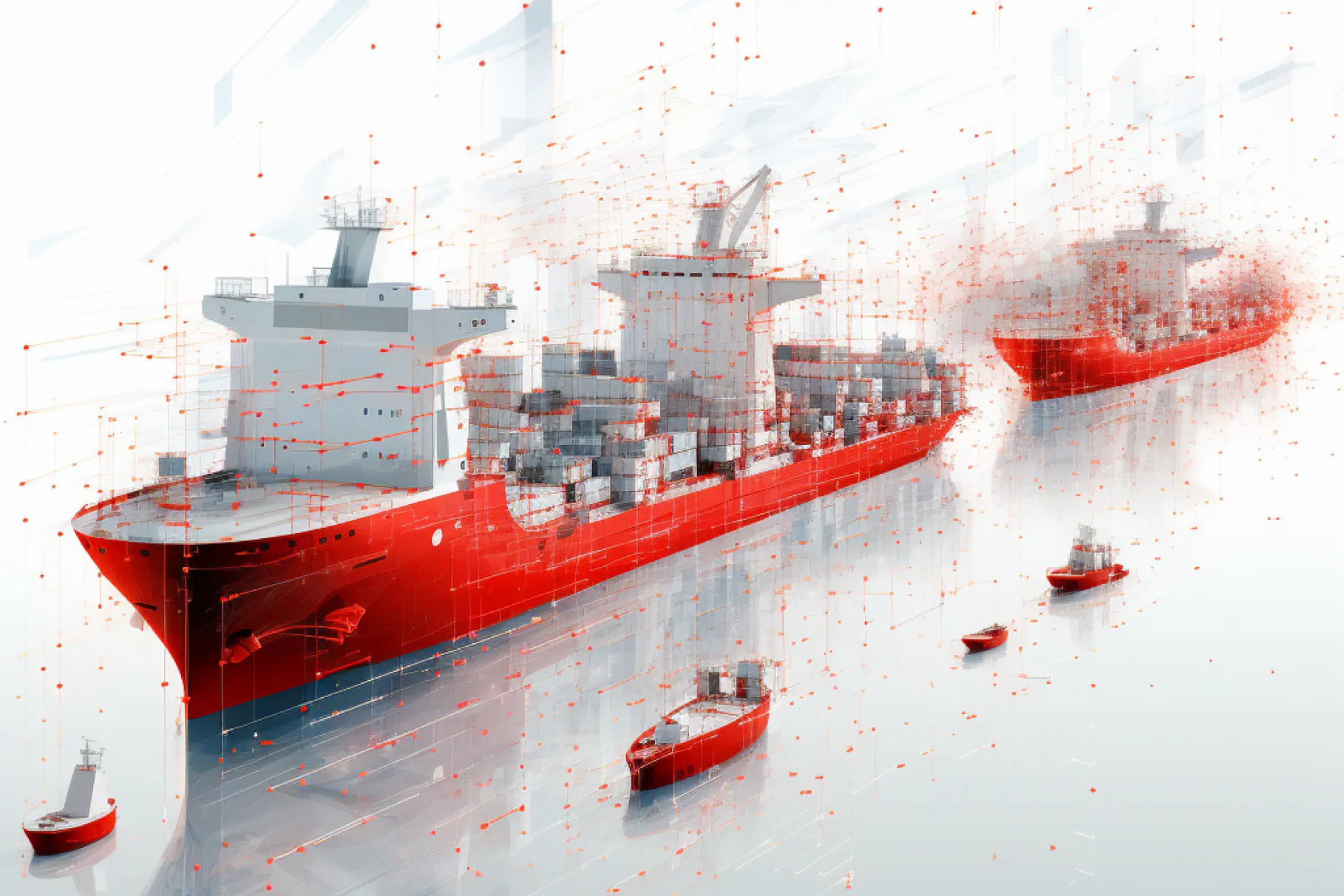- Home
India Port Community System
Explore a revolution in customs operations: quick duty collection, improved smuggling detection, and seamless online submissions for swift clearance. Plus, speedy agriculture certificate approvals, making life easier for traders and immigration officers.

Contents
Key insights
Enhanced Efficiency
Efficient customs operations with accelerated duty collection, improved detection of smuggled goods, and quicker clearance through online submission of documents and payment. Speedier approval of agriculture clearance certificates and streamlined processes for both traders and immigration officers.
Improved Management
The port authority can provide diverse online services for shipping agents, such as cargo tracking beyond the port, enhanced vessel space management, and streamlined coordination for booking, procurement, and document processing through a unified electronic interface.
“We have benefitted greatly from CrimsonLogic’s Port Community System (PCS). After implementing PCS in 16 ports, we have cut down the time for vessel submission and approval from 48 hours to immediate. Berth request and allocations can be processed instantly now.
Goods enjoy faster customs clearance as documents and data submitted in PCS is readily available. The Port authority is also able to provide various port related online services to the shipping agents, including tracking of cargo movement beyond port premises.”
Rajeev Puri
Senior Deputy Director (IT)
Indian Ports Association
Summary
Client: Indian Ports Association
Challenge: Integrating different operating procedures and IT systems of disparate ports.
Solution: CrimsonLogic’s Port Community System (PCS) offers a single electronic window for all port community stakeholders to access critical information readily and securely.
Benefits: The centralised electronic message switching facility and database allowed messages in multiple protocols to be exchanged easily among disparate ports in the community. It also enhanced customs authorities’ ability to track goods movement.
Introduction
In the early 1990s, the Indian government started globalizing its economy via trade. The opening up of 13 major ports and 25 minor ports across the 6,000 km peninsular coastline led to a massive growth in India’s seaborne trade. The traditional means of transportation via break bulk and liquid bulk (also known as commodity cargo) were replaced by containerized cargo.
The Indian government introduced private sector participation by adopting the “landlord port” model to distinguish the port owner from the operator. With this change, the government had to relinquish the responsibility of providing and managing port services to private developers.
Not only did the 13 ports have different operations handling various types of cargo, activities related to the cargo are also managed by multiple players, each having their own IT systems and processes. The multitude of standards used during peer-to-peer interactions and the lack of a central information hub to standardize the different protocols have resulted in reduced efficiency and high error rates during transactions.
The port community needed a single centralized platform for the consolidation and retrieval of information; a user-friendly interface that is common to all the existing systems of various ports, customs, banks, and financial institutions. There was also a need to improve the visibility and tracking of goods’ movement.
Solution
CrimsonLogic’s Port Community System (PCS) was the chosen solution for the Indian Port Network. PCS is a centralized intelligent electronic message switching facility that standardizes multiple protocols among the trading community, enabling the exchange of messages in XML and UN/EDIFACT. It is also equipped with a centralized database to track shipment, and at the same time serves as a data repository for research and analysis. PCS provides a secure web-based application to access and support information exchange between the central database and common processes. Currently, 16 ports and more than 2,500 registered stakeholders are using PCS. On a daily average, 30,000 messages are exchanged within the 16 ports. 14 major banks are connected to e-Payment and the financial transactions made via PCS are valued at an average of 7 billion Indian rupees monthly.
Benefits
Since the implementation of PCS in 2008, the following improvements were reported by the Indian Ports Association:
Messages | Before Implementation | After Implementation | Remarks |
Vessel Profile Submission and | 48 hours | Average 1-2 hours | In many cases, |
Voyage Registration and | 48 hours | Average 1-2 hours | In many cases, |
Bert Request and Allocation | Next day | Immediate |
|
Container Related Messages | Physical submission | All documents are submitted |
|
Cargo Related Messages | 5 - 6 hours | Within 1 hour of submission |
Talk to us
Learn how we can take your trade operations to the next level
Schedule a call

